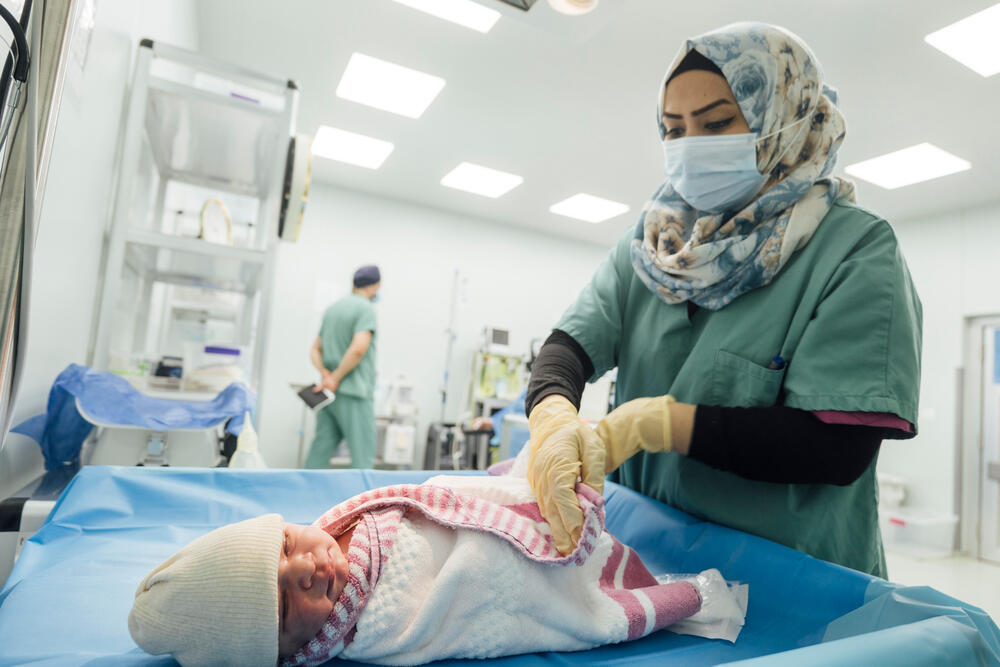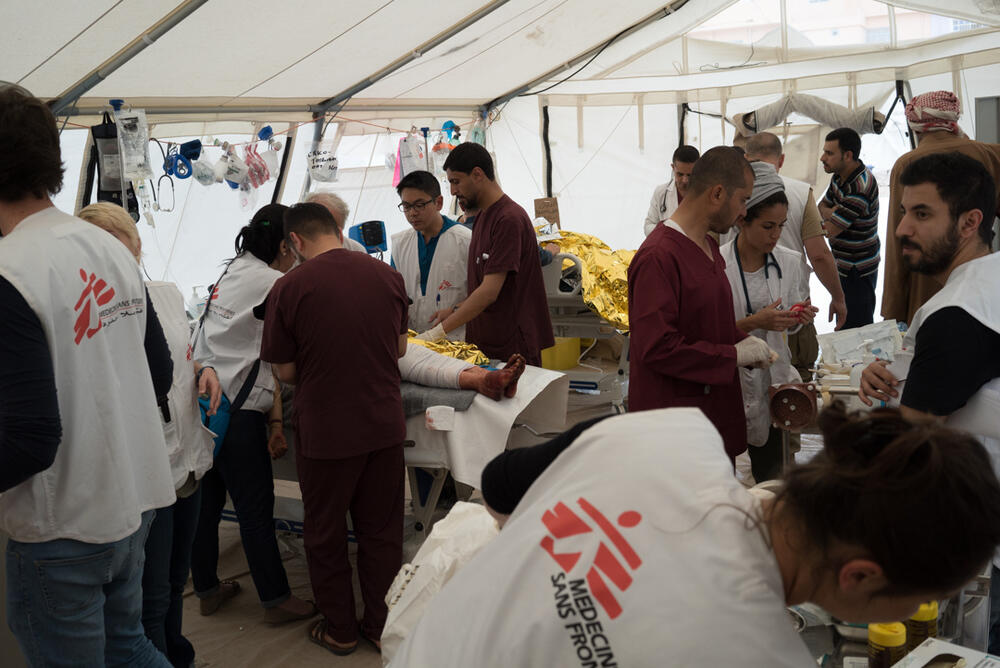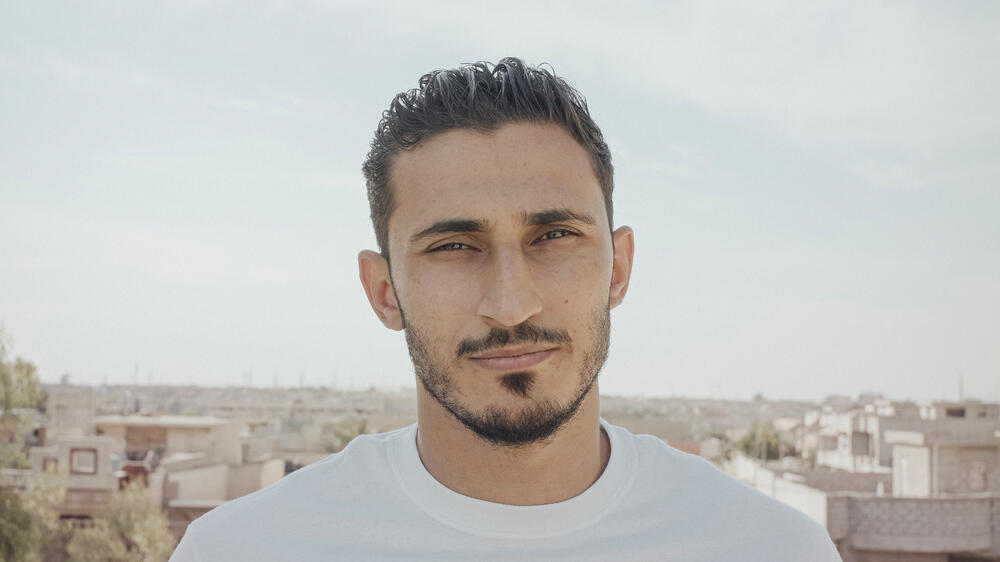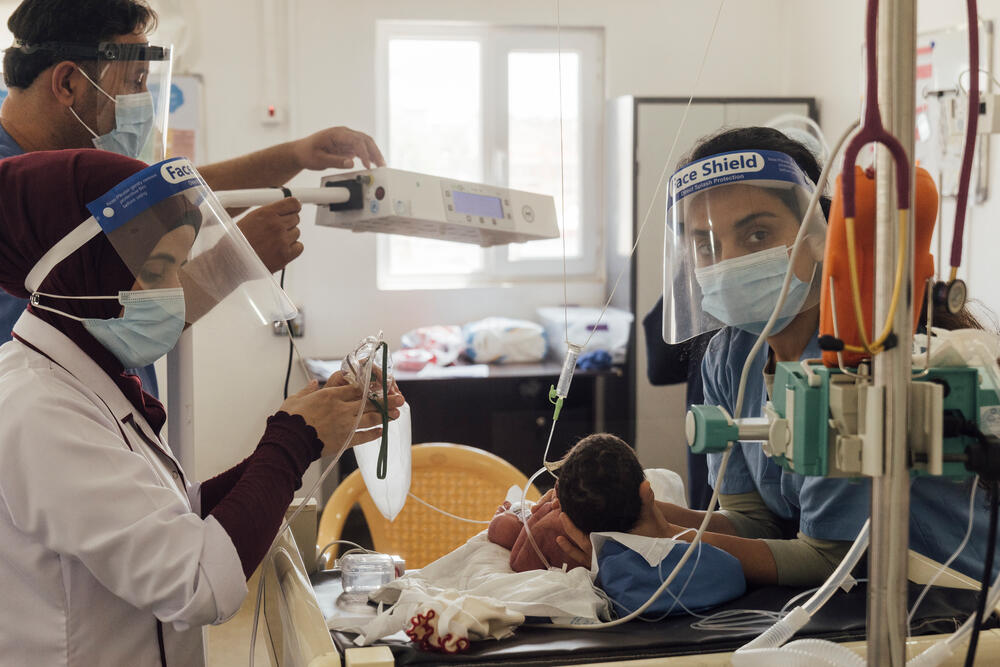Iraq: “The battle is over, but recovery takes years”
When the fighting is over, life doesn’t easily go back to normal. Four years after the brutal ‘Battle of Mosul’ in northwest Iraq, the city, its people, and the healthcare system are still recovering from the conflict.
“I still remember the exact moment I understood what it means to be neutral and impartial,” says Abdulrahman Dhannoon Khaleel, assistant project coordinator for Médecins Sans Frontières / Doctors Without Borders (MSF) in West Mosul.
“This was 2017; I had only been with MSF for a short time then. We were working in a makeshift hospital in the Nablus neighbourhood, close to the frontline. And injured people were arriving at our hospital every hour.”
“I was here when the Islamic State group took the city. It is impossible to explain what that was like. There are simply no words for it... It was like being tortured from the inside.”
“The situation was chaotic,” says Abdulrahman.
“One day, we received a wounded child in the MSF makeshift hospital. The six-year-old was being interrogated on the suspicion that his father was a member of the Islamic State Group.
“We put ourselves in front of the boy and protected him. The only thing that mattered to us was that he needed medical help. In the end, it turned out that he and his parents were civilians.”
“They tried to flee the city but did not manage to escape the fighting,” he continues.
“They were swept away by the battle and got stuck in the old city – a maze of small streets and historic houses – until the neighbourhood was liberated. In the chaos, the young boy was separated from his parents.”
Now, more than four years later, the devastating effects of the war are not only still visible, but also still strongly felt in the city of Mosul and the surrounding region in northwest Iraq.
Many people are still displaced, the collective psychological trauma remains largely untreated, and many of the damaged healthcare facilities are not yet fully functional again.
Physical and psychological scars
“I was here when the Islamic State group took the city in 2014 and until the end of the war. It is impossible to explain what that was like”, says 29-year-old Abdulrahman.
“There are simply no words for it... It was like being tortured from the inside. There was no future... nothing."
“The things we have experienced put a heavy burden on us. Nobody talks about that though. Yes, the war is over, yes, the city is safer, but you can still see a lot of anger and pain in people’s eyes wherever you go,” Abdulrahman continues.
“People here want to look forward. Many would say that they are happy, but in reality, we have seen a lot of misery, really a lot of misery.”
Just like its people, Mosul is fighting to get back on its feet. The traces of the war still shape the cityscape, but reconstruction efforts are progressing.
MSF teams are trying to heal both the physical and psychological scars of the war by providing access to much needed healthcare for the heavily affected people of Mosul.
“People tend to think that when a battle is over, things naturally go back to normal… But the truth is that recovery takes years – not to say decades”
MSF runs a hospital offering free neonatal, maternity, and paediatric services in the Nablus neighbourhood on the west bank of the Tigris River.
Further east, in Al-Nahrawan, one of the poorest neighbourhoods of Mosul, another similar project is run by our teams. In both places, an average of up to 1,000 children are born and cared for each month.
In east Mosul, MSF also offers reconstructive surgery and comprehensive post-operative care at the Al-Wahda Hospital. Here, our teams provide much-needed care for people injured by accidental or violent trauma.
Medical care where it's needed most
Help us care for people caught in the world's worst healthcare crises.
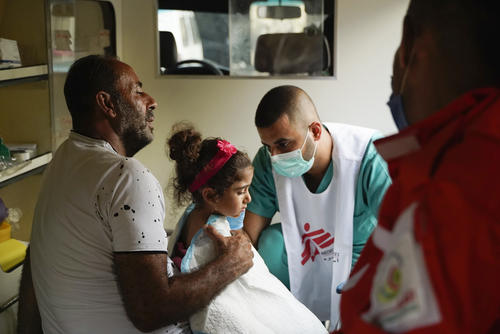
From January to October 2021, we provided 1,029 surgical interventions, as well as 4,494 inpatient and 1,351 outpatient consultations.
Psychological support and counselling services are also available at all three locations.
A recovering healthcare system
“People tend to think that when a battle is over, things naturally go back to normal,” explains Esther van der Woerdt, head of MSF in Iraq.
“But the truth is that recovery takes years – not to say decades. Many of the basic infrastructures were destroyed or damaged during the battles and many of them still need to be rebuilt or rehabilitated.
“Public healthcare in Mosul is struggling to cover the needs and some people still cannot afford care, either because they have lost everything in the conflict or are hardly making ends meet after they lost their livelihood.
“In that sense, the free healthcare services that we offer are quite essential for the people.”
Besides directly delivering medical care, MSF is also helping the city’s health system to get back on its feet – providing the required support to ensure it can cope with new emergencies.
In 2019, MSF rebuilt a hospital dedicated to the treatment of infectious disease in the east of Mosul, improving access to health services for the local community.
And, between March and December 2020, we supported the city’s hospitals to deal with the COVID-19 pandemic when our teams temporarily transformed a post-operative care centre into an isolation and treatment centre for coronavirus patients.
During that time, we directly cared for almost 1,000 patients at the centre. We also ran an intensive care unit between November 2020 and April 2021, offering advanced care for critically ill COVID-19 patients.
“Our activities in the city are evolving with the challenges”, says Van der Woerdt.
“And we’re trying to adapt to the best of our ability to the population’s medical needs, guided solely by our medical ethics and neutral and impartial principles.”
MSF in Iraq
Iraq is recovering from years of conflict and instability.
Although the civil war ended in late 2017, the security situation remains complex and unpredictable due to ongoing political disputes, tribal conflicts and attacks by armed groups.
